Due to the age of publications, certain works listed are no longer in print. Print-on-demand services are available for some titles upon request.
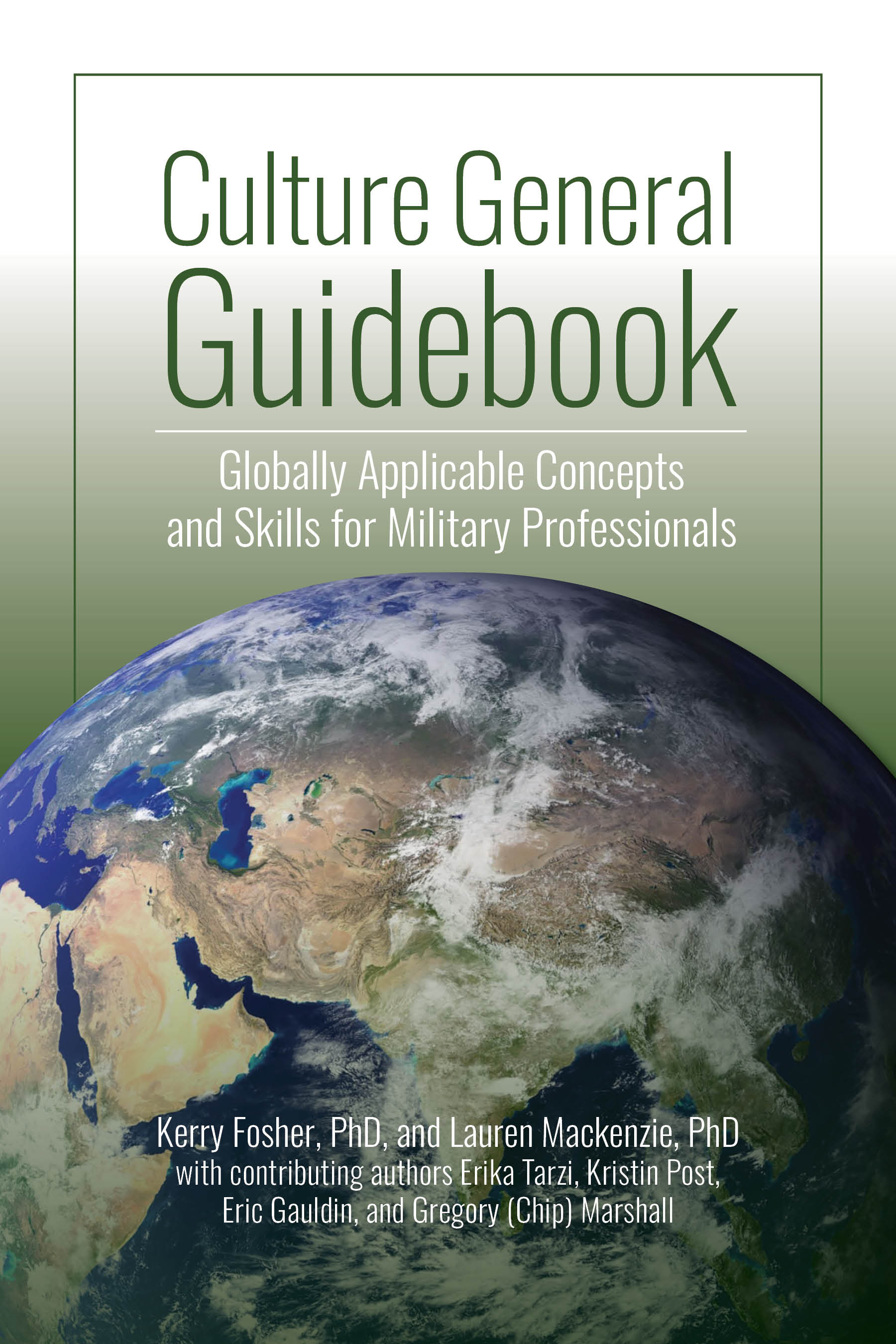 Culture General Guidebook
Culture General Guidebook
Globally Applicable Concepts and Skills for Military Professionals
Kerry Fosher, PhD; and Lauren Mackenzie, PhD
with contributing authors Erika Tarzi, Kristin Post, Eric Gauldin, and Gregory Marshall
Current and future operating environments require forces that are as prepared as possible to deal with a multitude of complexities, not least of which are the people within those operating environments and a need to understand them. At the core of understanding people is culture, and developing competence in the art of understanding people through culture requires a deliberate and persistent effort. This guidebook represents an important step in adopting a methodical approach to culture in operations and describes an evolutionary approach to understanding the human dimension. The concepts and skills presented here under the umbrella of culture general provide a pragmatic toolkit to prepare servicemembers for global employment through the deliberate application of culture general knowledge and skills to specific cultures and regions. The concepts and skills presented in the guidebook are general in nature, and applicable in many, if not most, intercultural interactions. This guidebook serves as a good baseline for military personnel to develop the cognitive, metacognitive, and behavioral skills they need in an increasingly complex national security environment.
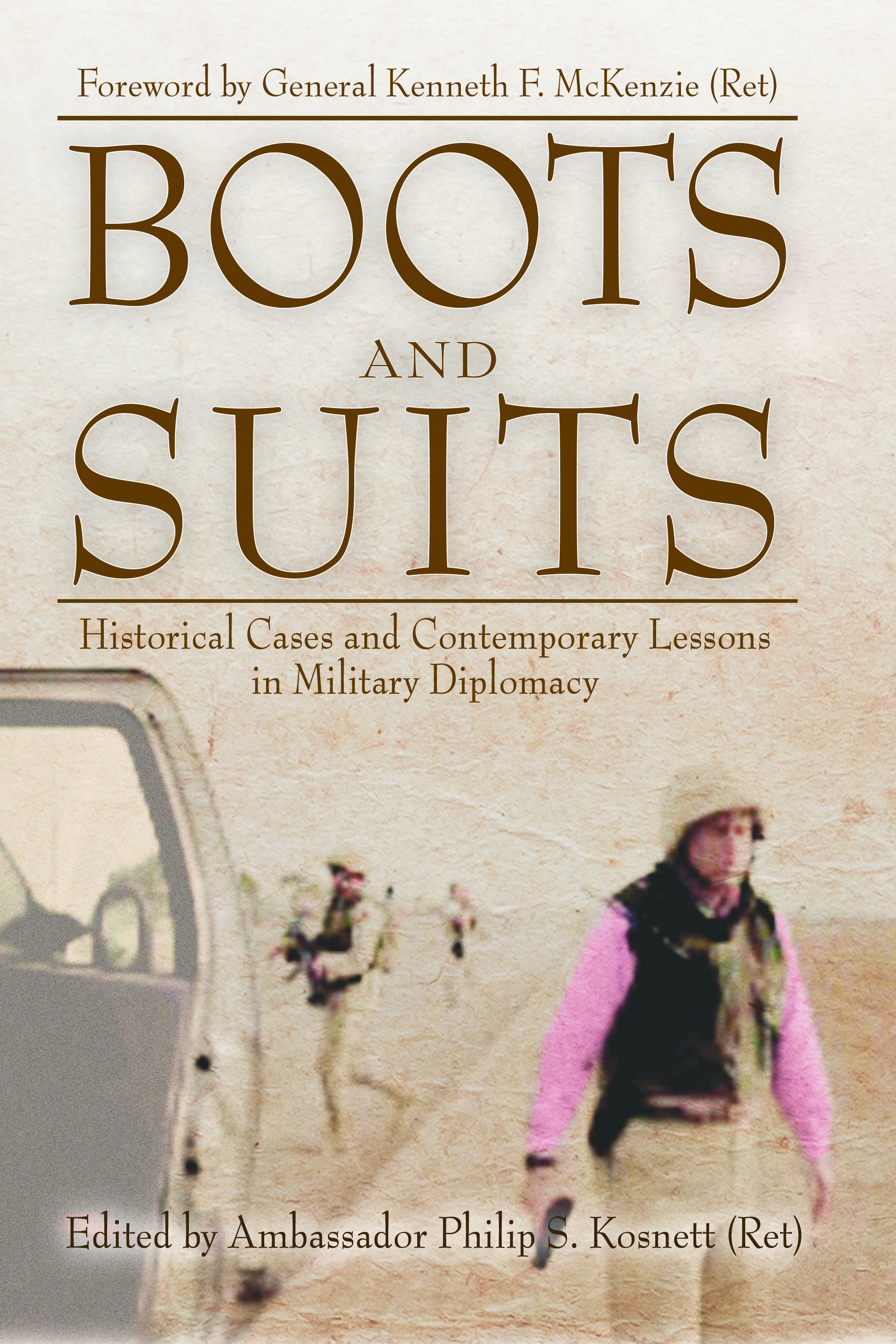 Boots and Suits
Boots and Suits
Historical Cases and Contemporary Lessons in Military Diplomacy
Edited by Ambassador Philip S. Kosnett (Ret)
Boots and Suits, edited by Ambassador Philip S. Kosnett (Ret), discusses aspects of military diplomacy, featuring an edited collection of chapters by ambassadors, scholars, and servicemembers. This diverse set of authors explains military diplomacy through the lens of both the military and the diplomatic corps of countries, including perspectives from the United States, the Netherlands, and Turkey, among others. This volume will examine the aspects of military diplomacy as used by nations and what differentiates this concept from both military confrontation and diplomatic overtures when used as discrete concepts by nation-states rather than employing military diplomacy to advance their strategic goals.
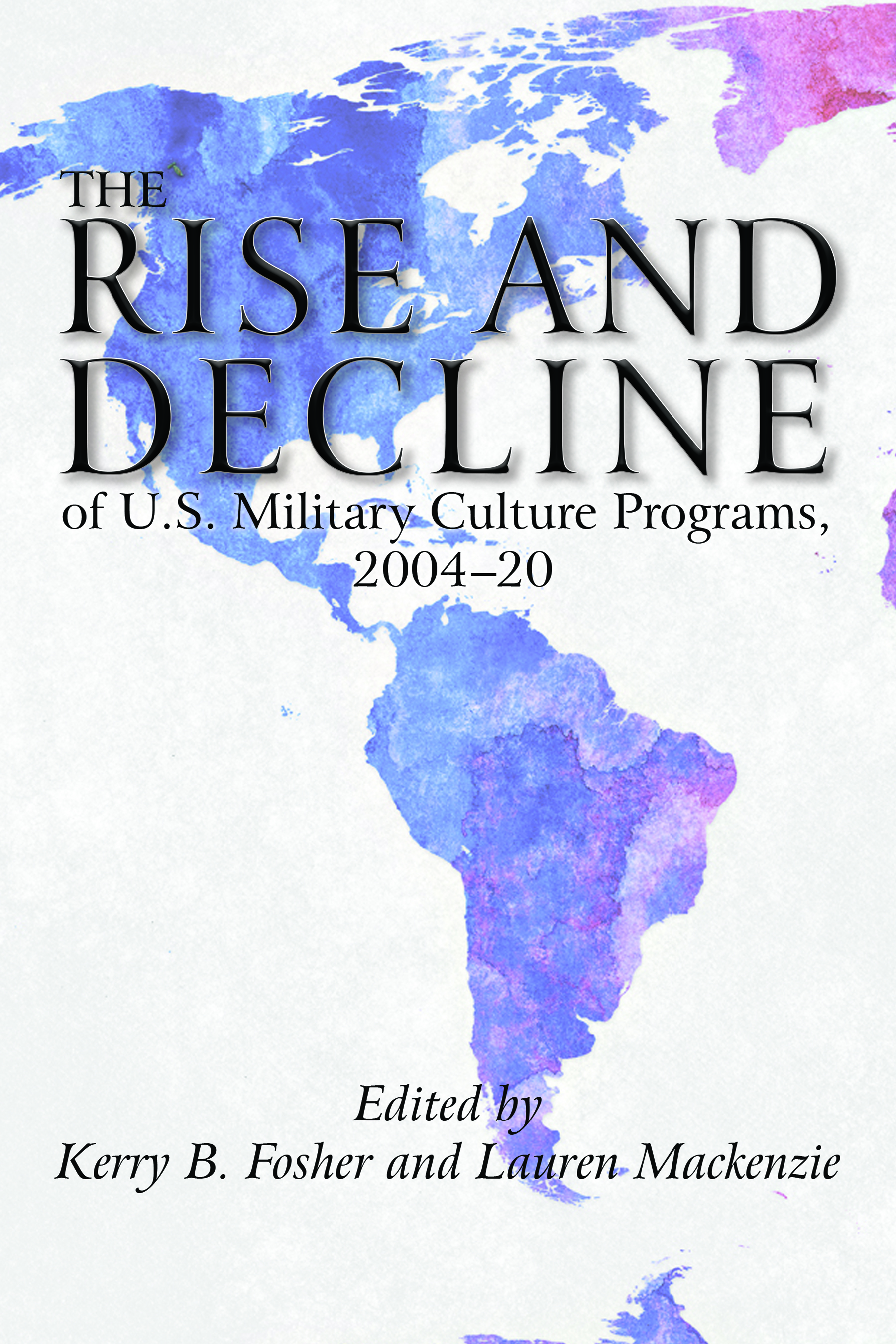 The Rise and Decline of U.S. Military Culture Programs, 2004-20
The Rise and Decline of U.S. Military Culture Programs, 2004-20
Edited by Kerry B. Fosher, PhD, and Lauren Mackenzie, PhD
This book compiles the insights and findings of some of the most determined and resourceful scientists, scholars, and practitioners engaged in the programs to inculcate the new capabilities in the early twenty-first century. The authors do not gloss over failures and dead ends. Rather, their expectation is that by presenting the bad with the good, they can help future generations engaged in the same task avoid their pitfalls and build on their work. More importantly, the authors hope that their writing might reach those who are still engaged in building cultural capabilities and that they will find encouragement to continue this essential work.
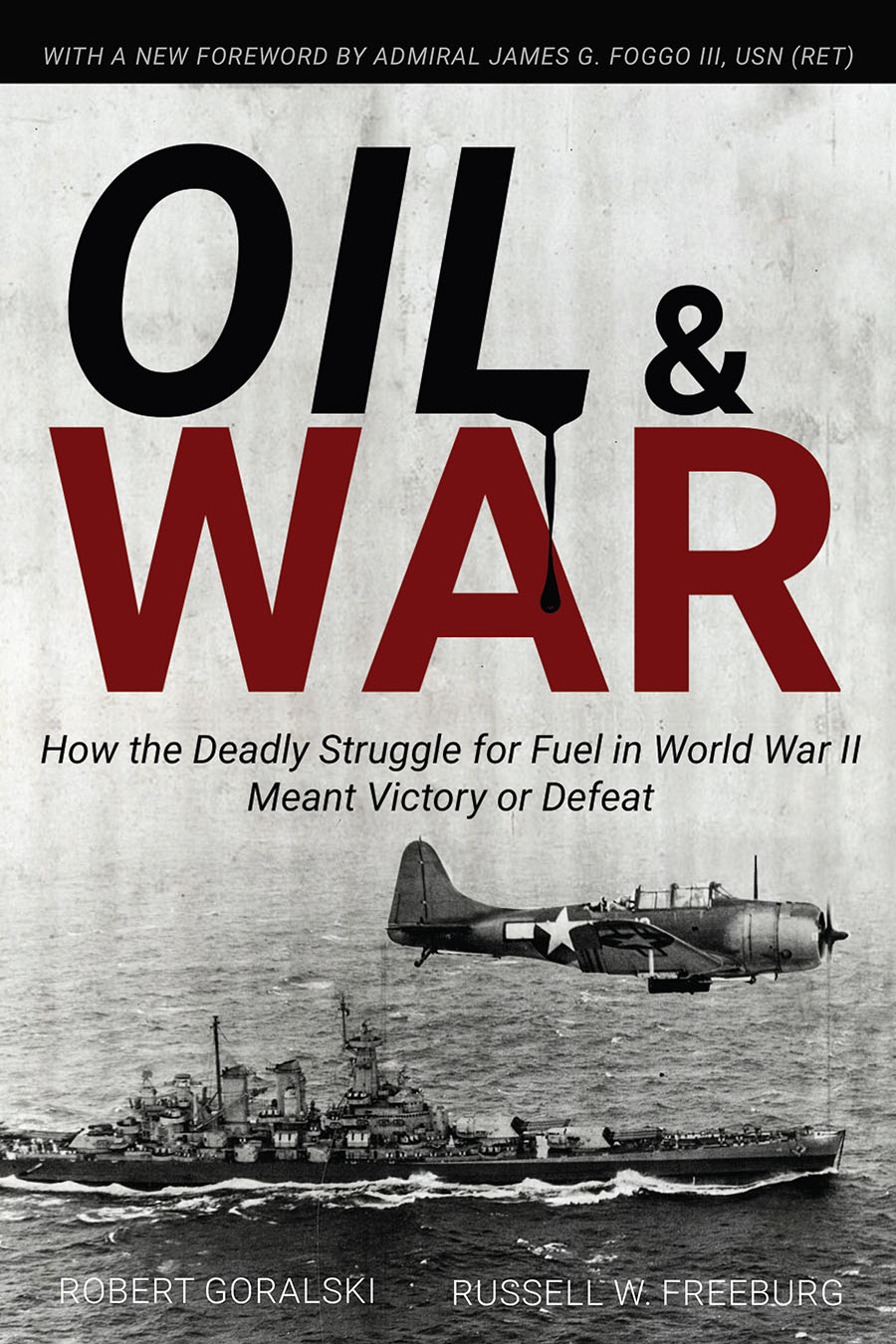 Oil & War
Oil & War
How the Deadly Struggle for Fuel in World War II Meant Victory or Defeat
By Robert Goralski and Russell W. Freeburg
The world's economy runs on oil. People steal for it. Nations kill for it. To win a war, the victor must have enough oil to fuel their tanks, ships, and planes. One of the great untold stories of World War II is about the strategic decisions and combat for the control of enough oil so that the Axis powers could wage an aggressive war. Conversely, the Allied powers were determined to keep oil from the Axis. Oil & War originally published in 1987, was the first book to explain this intricate dance of death from the viewpoints of both the Axis and Allied sides. Adolf Hitler began planning his grab for oil-producing lands in the 1930s; he also started building plants capable of producing synthetic fuels. The Japanese had their plans too. The Americans, English, and Australians had to counterpunch. They very nearly lost the war because they did not move quickly enough. The race was far closer than previously believed. Truth is stranger than fiction. Novels and wargames based on the strategies for oil have captured the public's attention. But here is the real story. This anecdotal narrative about the important role that oil played in World War II provides a view of the forces that controlled the greatest war in history-and a stunning analysis of the importance of oil in terms of world peace for years to come.
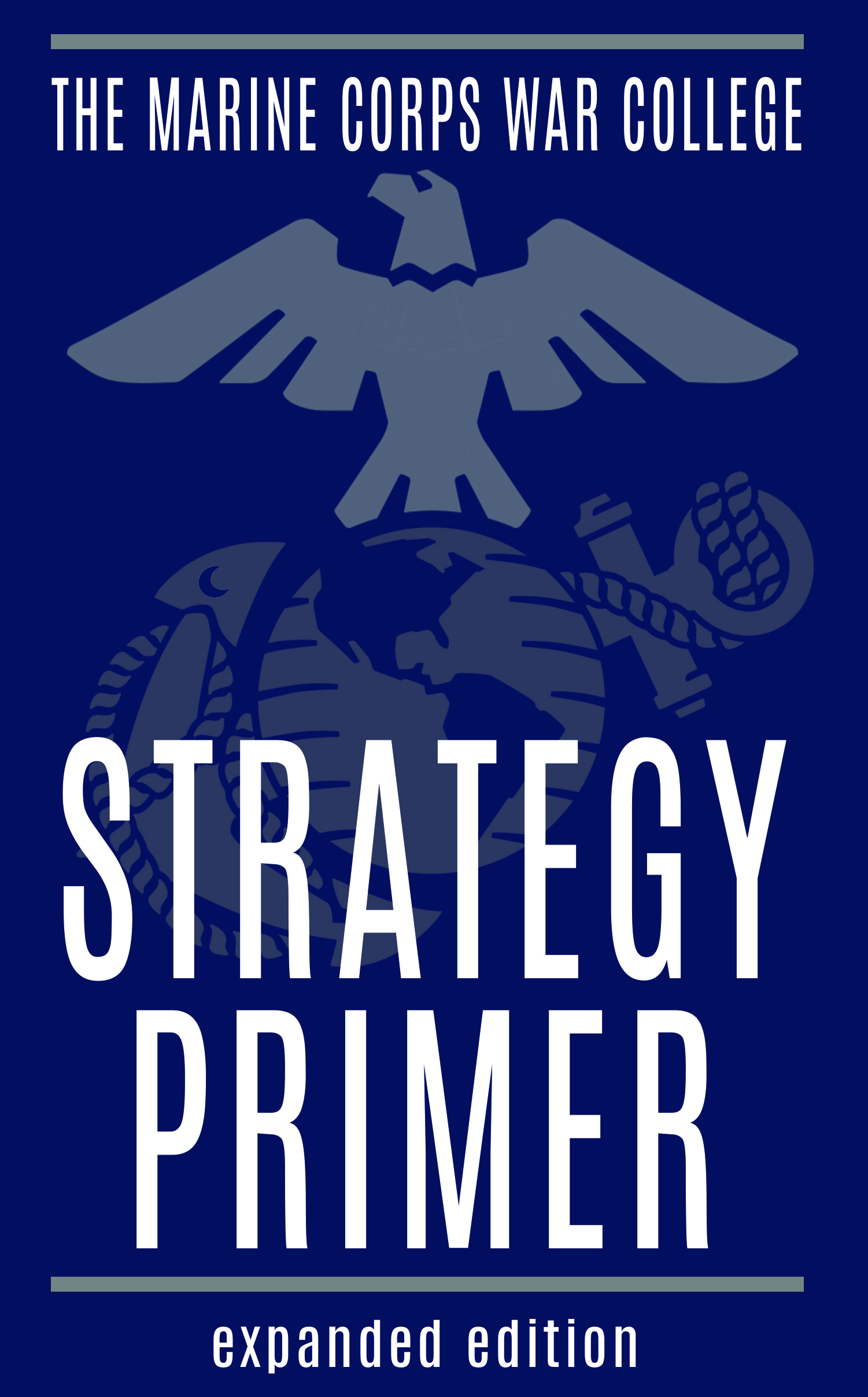 The Marine Corps War College Strategy Primer
The Marine Corps War College Strategy Primer
expanded edition
The Marine Corps War College Strategy Primer not only provides students an overview of the elements of strategic logic but also introduces a cognitive model for developing and assessing strategy by leveraging innovative design methodologies and other critical and creative thinking approaches. In short, this primer aids in forging strategically minded warfighters who understand how the military instrument fits within a whole-of-government strategy. Only then can MCWAR’s historical case studies effectively teach the art and science of the “strategy bridge,” nesting military options in support of policy ends in shared pursuit of a better peace.
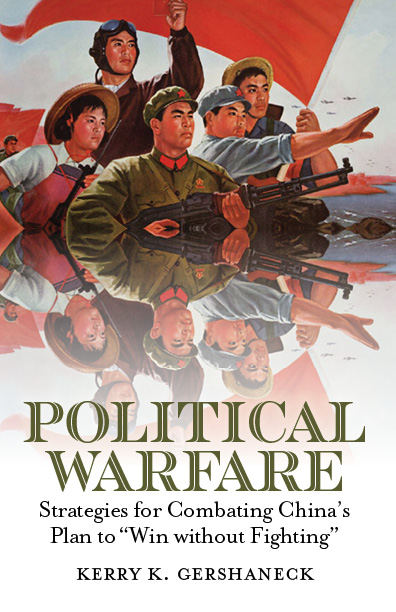 Political Warfare
Political Warfare
Strategies for Combating China's Plan to "Win without Fighting"
By Kerry K. Gershaneck
Political Warfare provides a well-researched and wide-ranging overview of the nature of the People's Republic of China (PRC) threat and the political warfare strategies, doctrines, and operational practices used by the Chinese Communist Party (CCP). The author offers detailed and illuminating case studies of PRC political warfare operations designed to undermine Thailand, a U.S. treaty ally, and Taiwan, a close friend.
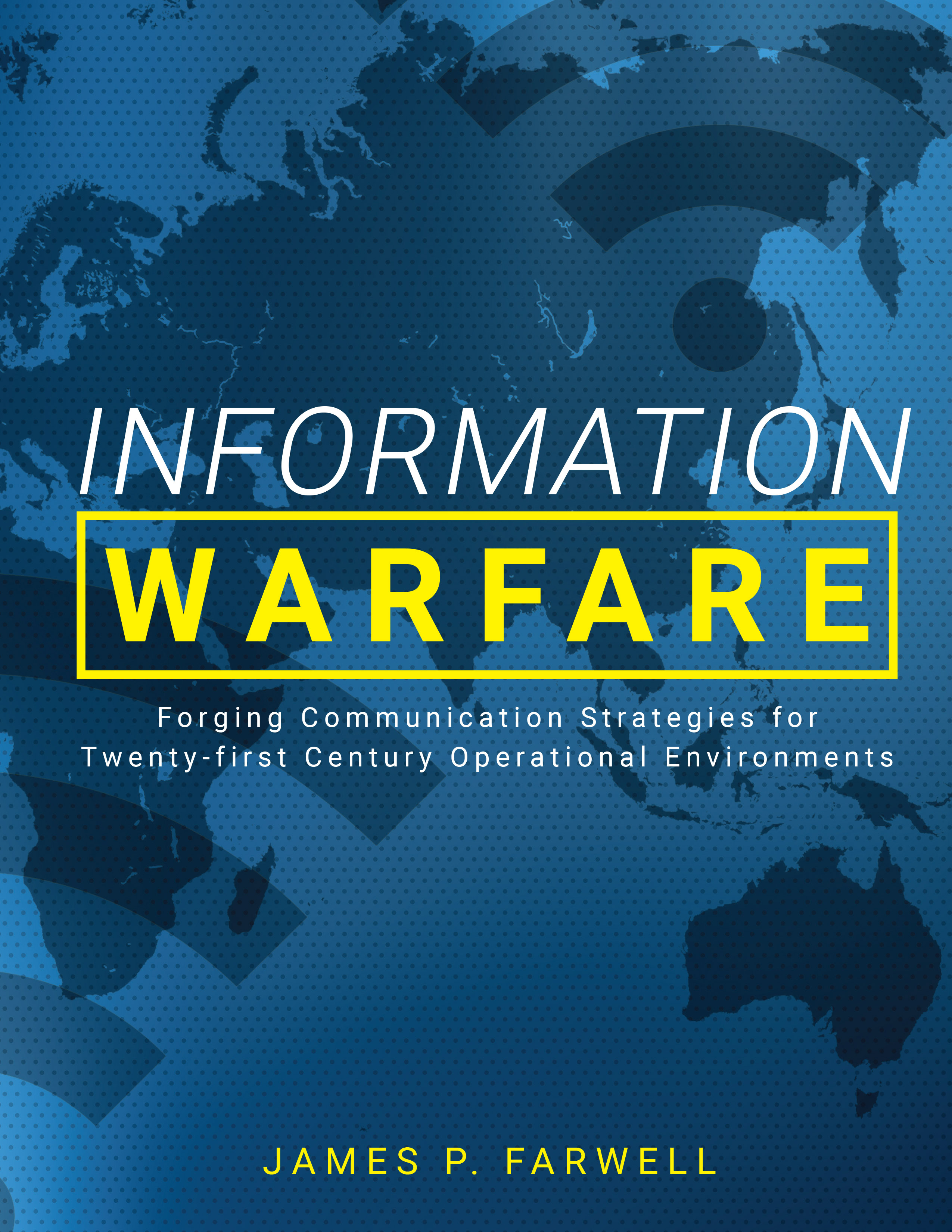 Information Warfare
Information Warfare
Forging Communication Strategies for Twenty-first Century Operational Environments
By James P. Farwell
Great political and military leaders understand that communication strategies are key to victory in any conflict. Seizing the narrative can enable victory while failure to do so yields that advantage to the adversary. Gone are the days when competing armies confronted one another across battlefields. The information environment has made engagements and conflict both local and global all at once such that—as never before—information warfare is critical to victory. Understanding culture, history, local political dynamics, the interactions of different players, and the need to forge cohesive communication plans at the strategic, operational, and tactical levels matters more than ever to commanders and operators. In Information Warfare, James P. Farwell describes how commanders and operators must and can define winning outcomes and the strategies, operations, and tactics to achieve them. He lays out concrete, actionable steps to get results and places them in historical context, then provides a workbook to assist readers in devising communication strategies that produce victory in the sphere of information warfare.
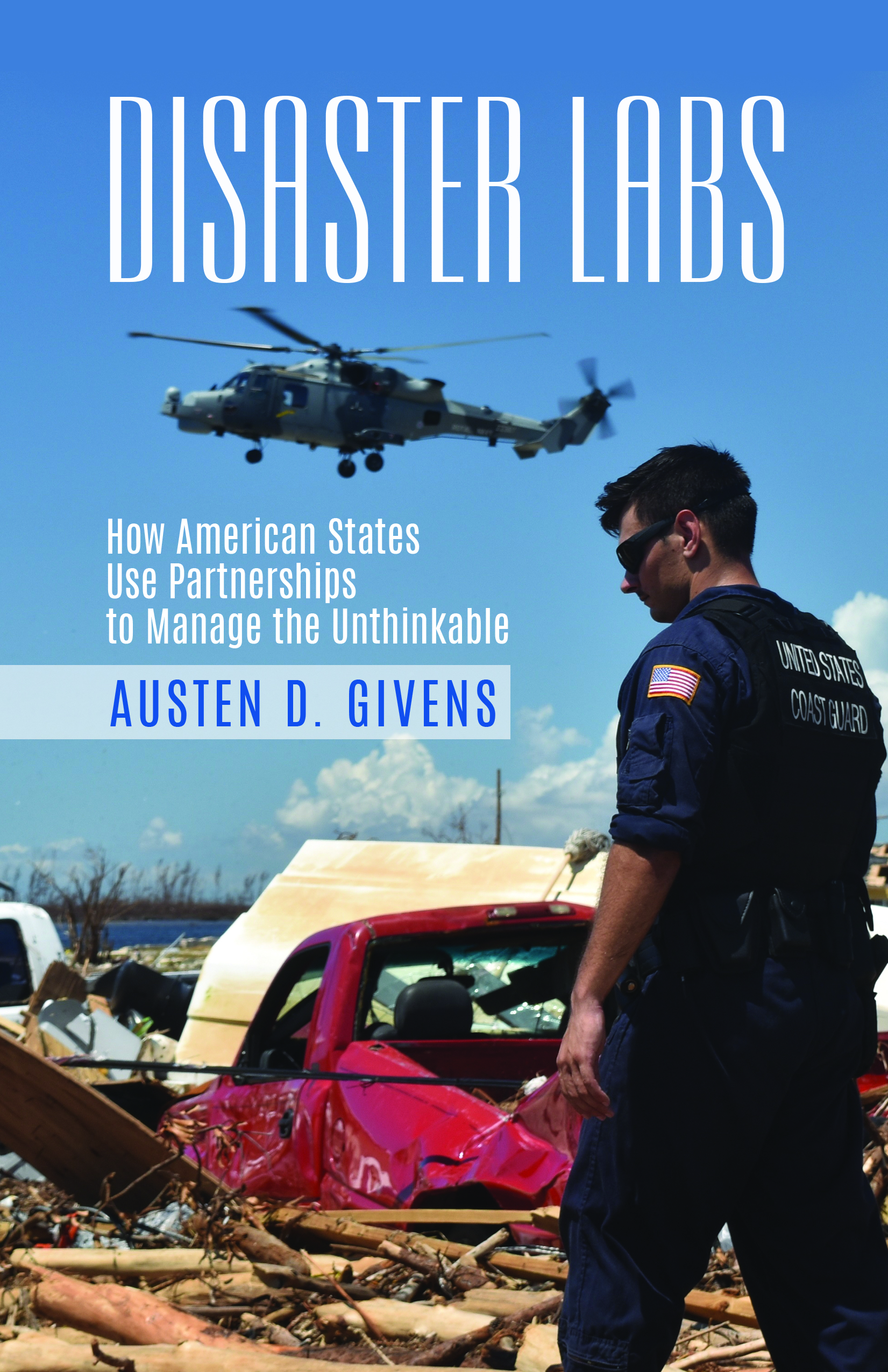 Disaster Labs
Disaster Labs
How American States Use Partnerships to Manage the Unthinkable
By Austen D. Givens
Disaster Labs explores how state governments partner with businesses and nonprofits to manage large-scale emergencies. Using extensive one-on-one interviews with senior government and private sector leaders in California, Florida, New York, and Virginia, coupled with analyses of government policy documents, laws, regulations, and press accounts, Disaster Labs examines how public-private sector coordination is now essential for emergency management nationwide.
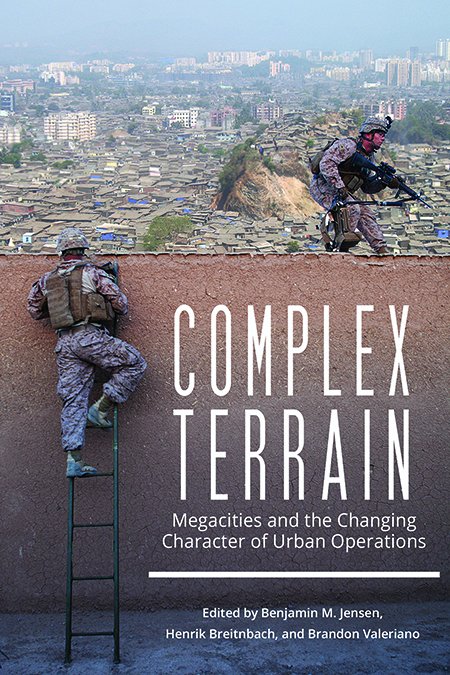 Complex Terrain
Complex Terrain
Megacities and the Changing Character of Urban Operations
Edited by Benjamin M. Jensen, Henrik Breitenbauch, and Brandon Valeriano
This edited volume, composed by military professionals in the Gray Scholars Program at Marine Corps University, describes the changing character of urban operations. The pattern of human settlement and interaction is changing and the future is urban. Because the majority of the world’s population lives within cities, the future of strategic competition and conflict reside there as well.
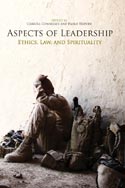 Aspects of Leadership
Aspects of Leadership
Ethics, Law, and Spirituality
Edited by Carroll Connelley and Paolo Tripodi
Aspects of Leadership brings together scholars from different disciplines and practitioners from a broad variety of backgrounds to address three key areas: ethics, law, and spirituality. The essays in this book are intended to inform leaders, and the general public, about the challenges of ethical decision making, the application of the law of war, and the important role of spirituality. Aspects of Leadership will educate readers and generate important questions that leaders should ask themselves, encouraging them to reflect upon their pivotal roles in these three areas.
 The Best-Laid Schemes
The Best-Laid Schemes
A Tale of Social Research and Bureaucracy
By Seymour J. Deitchman
The Best-Laid Schemes contains two overarching lessons for current and future efforts. First, social scientists and defense personnel failed to communicate their constraints and capabilities sufficiently for integration to happen. Social science cannot do everything DOD wants. Some of what military organizations want is not scientifically possible or violates the ethical codes necessary for scientific enterprise. Likewise, DOD, especially the supporting establishment, is not a blank slate onto which scientists can layer current theory, methods, and information.
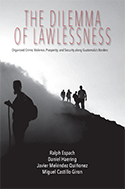 The Dilemma of Lawlessness
The Dilemma of Lawlessness
Organized Crime, Violence, Prosperity, and Security along Guatemala's Borders
By Ralph Espach, Daniel Haering, Javier Meléndez Quiñonez, and Miguel Castillo Giron
This study addresses this gap by examining the effects of illicit trafficking and criminal organizations within the three border municipalities of Guatemala: Sayaxché in the northern department of Petén, Gualán in the eastern department of Zacapa, and Malacatán in San Marcos in the west. These municipalities sit on important smuggling routes and are well-known by Guatemalan police, intelligence agencies, and local populations to be regional centers for organized crime.